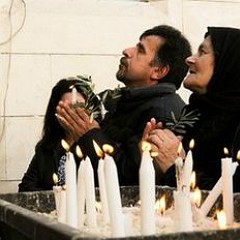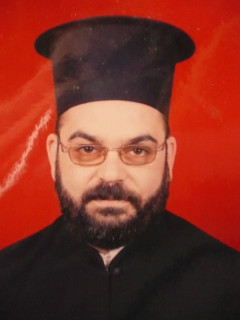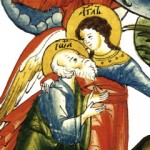
“’For Your sake we are killed all day long; we are accounted as sheep for the slaughter.’ Yet in all these things we are more than conquerors through Him who loved us.” –Romans 8.36-37
On November 4 this year Christians gather to pray for their suffering brothers and sisters. The annual International Day of Prayer for the Persecuted Church provides a time to lift up believers who suffer deprivation, torture, and death for confessing Christ.
Martyrdom has been a part of Christian witness since the beginning. All but one of Christ’s apostles were martyred, as were many their successors, men like Ignatius of Antioch and Polycarp of Smyrna. The lull in aggression toward the church since the fall of communism might have dulled Western memories to the horrific slaughter and repressions of the twentieth century, but the lull seems over, and the church around the world is experiencing intense persecution.
The rising tide
Christians were the victims of 85 percent of hate crimes committed in 2011 in Europe, according to one study. And compared to just a few years ago there is a marked increase in countries around the world restricting religious practice, according to the Pew Forum on Religion and Public Life, which observed a similar uptick in the number of countries where social hostilities toward religion have intensified. Pew’s report, “A Rising Tide of Restrictions on Religion,” was published in September.
A casual scan of problem nations tells a large part of the story: Indonesia, Sri Lanka, Burma, India, Afghanistan, Iran, Iraq, Saudi Arabia, Syria, Egypt, Tunisia, Eritrea, Yemen, Nigeria, Somalia. In many cases, perhaps in most cases, the targeted religious groups in these countries are Christians.
One of those countries, Syria, stands out at this moment for its brutal and ruthless treatment of Christian communities whose roots go back to the very first Christians, those evangelized by the apostles themselves. Churches have been ransacked and Christians run out of their homes, forced to flee with little hope of return.
Gradual extinction in the Middle East
“Last year, Christians made up ten percent of the population of Syria,” Metropolitan Hilarion of the Russian Orthodox Church told the United Nations October 23. But now, he said,
tens of thousands of Christians have fallen victim to religious intolerance. Their churches and shrines are being destroyed, they are leaving cities and villages where they lived for centuries, their homes are ruined or captured by the radically-minded representatives of the dominant religion. No less than fifty thousand Christians have had to flee from the Syrian city of Homs.
In all, the UN reports more than a quarter million refugees from the struggle. Observers worry about a replay of Iraq, where the native Christian population, about 1.5 million strong in 2003, plummeted nearly 90 percent in the wake of the U.S. invasion, devastated by Islamic terrorism and repression.
It’s part of a larger pattern that Metropolitan Hilarion referred to as “the gradual extermination of Christianity in the Middle East” in a recent interview with the Acton Institute.
The good shepherd

At the same time Metropolitan Hilarion spoke to the United Nations, Fr. Fadi Haddad, pastor of St. Elias Church outside Damascus, was being held against his will by several of those “radically-minded representatives of the dominant religion.” He had been missing for several days by that point.
Fr. Fadi was working to negotiate the release of one of his parishioners who had been kidnapped by militants. He was in turn kidnapped. On October 25, his body was discovered showing “indescribable marks of torture and mutilation,” according to a statement by the Antiochian Patriarchate.
We commemorated him in the liturgy this last Sunday, the “Hieromartyr Fadi,” a shepherd who gave his life for his sheep, following the example of the Good Shepherd.
Martyrs are often commemorated with troparia — or hymns — in the Orthodox Church, and one has already been written for Fr. Fadi, picking up on the theme of the Good Shepherd:
Imitating the Good Shepherd, thou didst lay down thy life for thy sheep,
and with thy blood thou didst suffer for the faith.
Wherefore, O Hieromartyr Fadi of Damascus,
intercede with Christ our God that our souls may be saved.
Prayers of the martyrs
While Fr. Fadi’s story serves as an bloody exclamation point to Metropolitan Hilarion’s statement to the UN, it is also useful for our reflection, particularly since his death comes so close to the International Day of Prayer for the Persecuted Church. While we pray for the persecuted church, we should also take heart that the persecuted church is praying for us.
The troparion entreats the martyr to “intercede with Christ our God.” We know that we are held aloft in prayer by the communion of the saints, and martyrs — the last who become first — are ranked as the greatest among the saints. As I mentioned in my last post, we find pictures of this intercessory role in the book of Revelation, and it is fully assumed in and by the ancient tradition of the church.
As Augustine wrote, for example, “It is true that Christians pay religious honor to the memory of the martyrs, both to excite us to imitate them and to obtain a share in their merits, and the assistance of their prayers” (Against Faustus 20.21).
And again: “[W]e do not commemorate them at [the Lord’s] table in the same way as we do others who now rest in peace, as that we should also pray for them, but rather that they should do so for us, that we may cleave to their footsteps. . .” (Homilies on John 84.1).
More than anything, the mounting crimes against the faithful warrant turning to the throne of God. But as we pray for our fellow believers in horrific and dire circumstances, let us also remember that we are joined by the martyrs beneath the altar of God who likewise lift their voices for those who suffer.
















